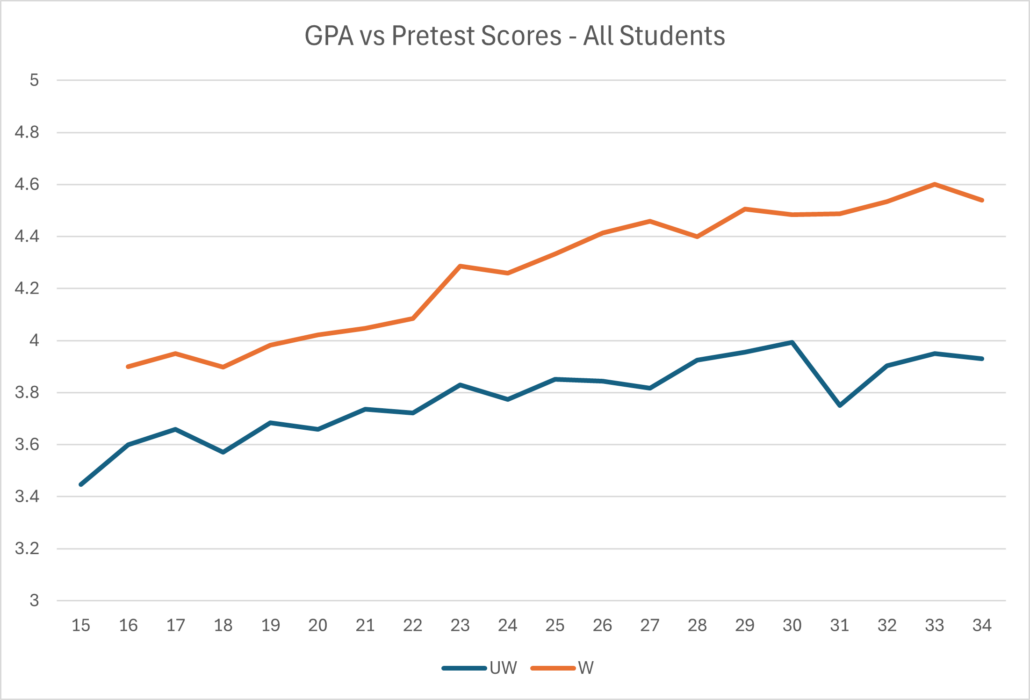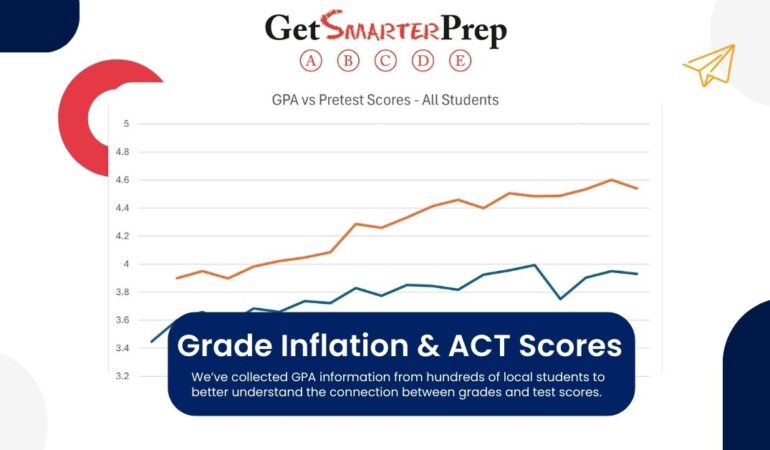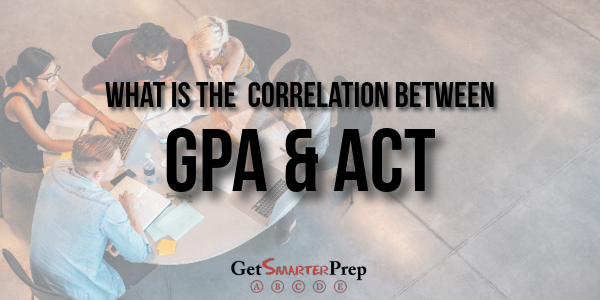Grade Inflation and Test Optional Policies
Over the past 15+ years, Get Smarter Prep has helped thousands of students achieve their goals of academic excellence, whether that means getting accepted into their reach school or bumping up to a higher scholarship bracket. How important are ACT or SAT test scores in today’s college admissions process?
We continue to recommend that students work towards achieving their best ACT score, even when their top choice schools are currently test-optional. Here are a few reasons for that recommendation.
Policies change every year.
Admission requirements have been in flux since ACT and SAT testing was disrupted in 2020. Even though regular testing has resumed, colleges and universities have largely continued to maintain test optional policies. However, that trend has begun to reverse for the class of 2025, as more colleges are reinstating their ACT and SAT requirements. Yale, Dartmouth, Harvard, and UT Austin are just a few of the schools which have gone back to requiring standardized testing in recent months, and we expect more announcements to follow.
Because changes are still being announced that impact the admissions process for the class of 2025, students who planned to apply without scores may find requirements and recommendations changing at their top choice schools. We want our students to be as prepared as possible, and that includes having solid test scores ready as requirements change.
Even at schools that are test optional, good scores can set a student apart.
Even when applying to a school that is test optional, giving the admissions team more information about what makes a student a great fit is always a good idea. When a student has competitive scores, those scores provide a boost in the admissions process.
Even at schools that are test optional, some programs or scholarships may not be.
Students may plan to apply without scores, only to find that a specific scholarship or program requires them. In addition, while some schools offer test optional admissions, they may require ACT or SAT scores for placement purposes after a student has been admitted. Working now to achieve the best possible score will help ensure a student is prepared for whatever the admissions process throws at them.
Good grades may not be enough.
We’ve collected GPA information from hundreds of local students to better understand the connection between grades and test scores, and we’ve found that there isn’t much correlation between them. While we work with students across the entire range of ACT scores, 50% of our students have unweighted GPAs of 3.9 or higher, and 85% of our students have weighted GPAs of 3.9 or higher. How is a student with a 3.9 supposed to stand out, when so many other students have similar transcripts?

Even if a student works hard and gets great grades, those grades alone may not make them competitive in a crowded admissions ecosystem. The average GPA for admitted students at the University of Arkansas is 3.8. At Creighton, it’s a 3.9. Indiana reports their average GPA as 3.97.
Grade inflation, unfortunately, is an ongoing problem that plays a role in these numbers being so high. Some colleges and universities have begun to rely more heavily on class rank instead of GPA, when class rank is available, as a way to differentiate between students when so many have high GPAs. Class rank, however, is not calculated at many schools. In situations like this, competitive test scores can provide a critical boost to an application.



